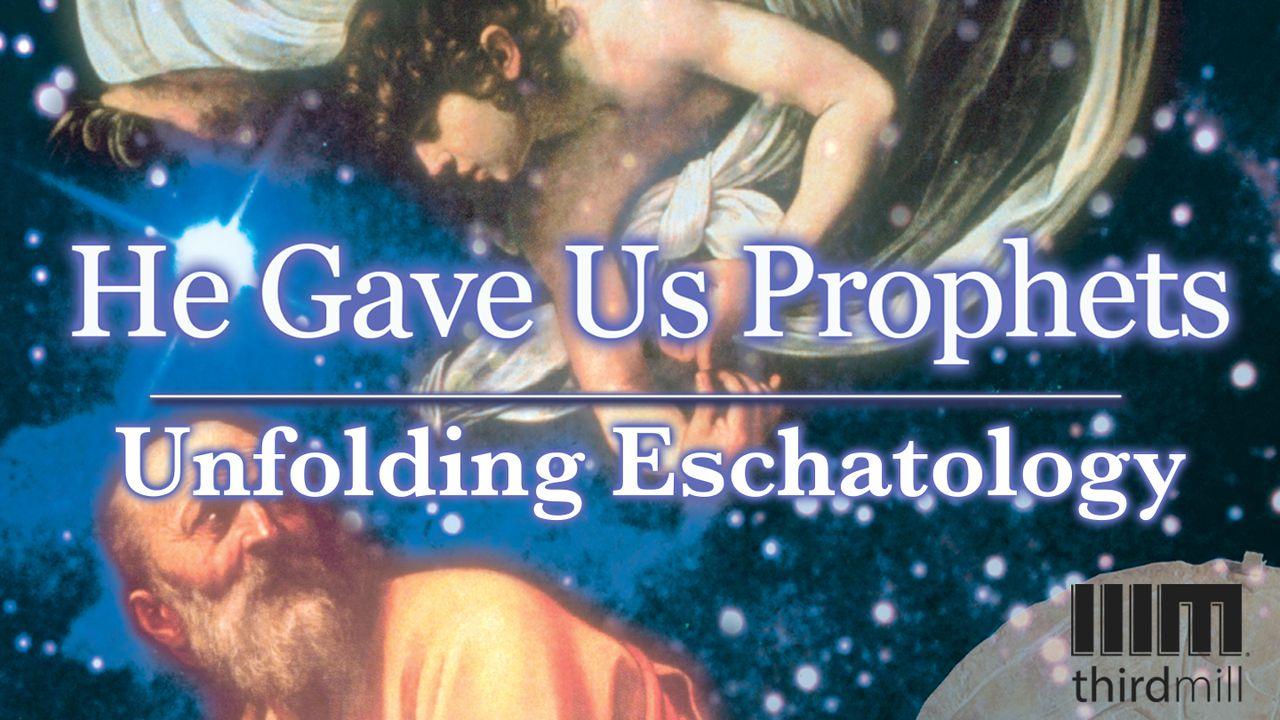He Gave Us Prophets: Unfolding Eschatology预览

Basic Covenant Dynamics: Deuteronomy 4:25-31
Eschatology in Moses’ writings develops out of a basic pattern of blessing and judgment. According to Moses, the judgments and the blessings of the covenant would not continue in an eternal circle, never going anywhere or toward any goal. On the contrary, Moses saw a definite end, or eschaton, in the future. To understand how Moses taught a culmination to the covenant life, or an eschaton, we need to see three elements in his outlook on history: first, exile; second, repentance and forgiveness; and third, restoration from exile.
In the first place, Moses expected that judgments would increase as Israel went further and further away from God. This increase in judgment would culminate in the exile of Israel from the Promised Land. The people of God would suffer defeat in war, and the harmony of nature in the Promised Land would turn into the corruption of nature. The people of God would be scattered among the nations, and the Land of Promise would lie in ruins. Consider the way Moses puts it in Deuteronomy 4:25-28:
After you have had children and grandchildren and have lived in the land a long time — if you then become corrupt and make any kind of idol, doing evil in the eyes of the Lord your God and provoking him to anger, I call heaven and earth as witnesses against you this day that you will quickly perish from the land that you are crossing the Jordan to possess. You will not live there long but will certainly be destroyed. The Lord will scatter you among the peoples, and only a few of you will survive among the nations to which the Lord will drive you. There you will worship man-made gods of wood and stone, which cannot see or hear or eat or smell.
We see here that Moses predicted that a terrible exile would take place, but as horrible as this exile would be, it was not the end of the history of God’s covenant with Israel. Repentance and forgiveness could change the situation of exile. As Moses put it in 4:29:
But if from there you seek the Lord your God, you will find him if you look for him with all your heart and with all your soul.
Once exile had occurred, the people of God could come to their senses, repent and then find forgiveness from God.
What would be the result of this repentance and forgiveness? In a word, it would be restoration from exile. Moses taught that God would have mercy on his people and bring them back to the land to enjoy a permanent state of unimaginable covenant blessings. Consider the way Moses described the culmination of covenant blessing in Deuteronomy 4:30-31:
When you are in distress and all these things have happened to you, then in latter days you will return to the Lord your God and obey him. For the Lord your God is a merciful God; he will not abandon or destroy you or forget the covenant with your forefathers, which he confirmed to them by oath.
In 4:30, Moses coined a technical term for this period of final restoration. He said that the restoration of Israel after the exile would take place in the “latter days.” The Hebrew behind this expression is b’aharit hayyamim (הַיָּמִ֔ים בְּאַחֲרִית֙). In most cases this kind of terminology simply meant “the future” of some indefinite sort. But here, in Deuteronomy 4:30 we find the technical use of the terminology “the last days” or “the culmination of history.” This technical use appears in many places in the prophets, including Isaiah 2:2; Micah 4:1; and Hosea 3:5. In the New Testament, the same expression occurs in Acts 2:17; Hebrews 1:2; and James 5:3. In fact, it is this expression from which we get our theological term “eschatology” — the study of last things or last events.
Click here to watch He Gave Us Prophets: Unfolding Eschatology, lesson eight in the series He Gave Us Prophets. thirdmill.org






